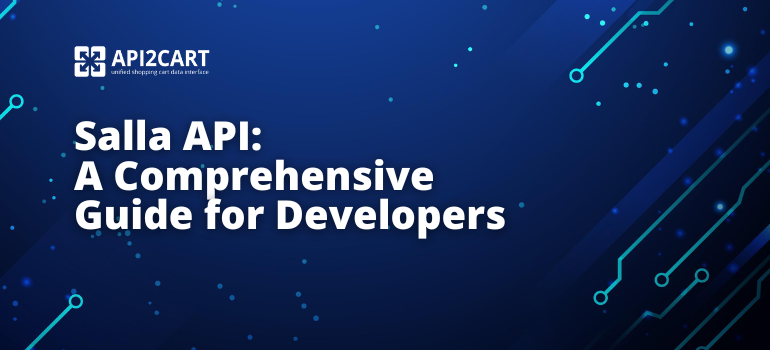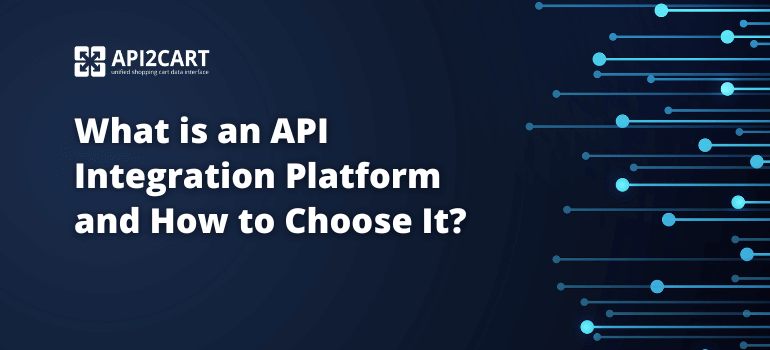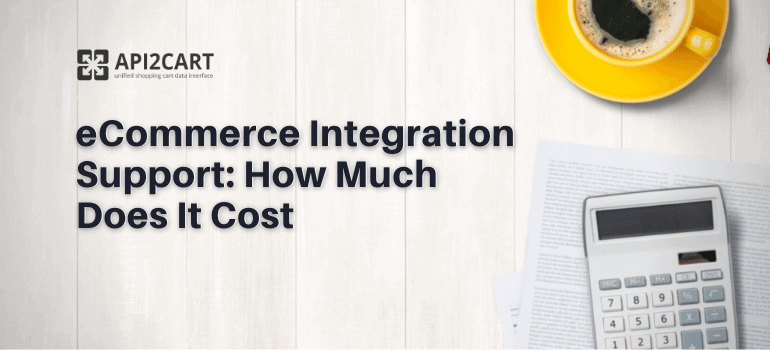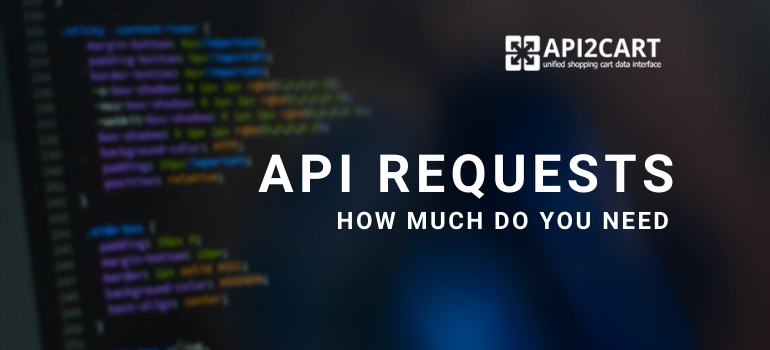
Salla is one of the most popular Middle Eastern-based eCommerce platforms. It provides sellers with the tools and environment for creating, launching and expanding online stores. Salla offers features such as product management tools, orders, and integration with payment and shipping facilities. Salla API allows software developers to integrate third-party applications and services with this platform.
In this article you will discover the peculiarities of Salla API and how to easily develop an integration with this platform.
What is Salla API?
Salla API is an important asset for developers who seek to integrate with Salla and expand their products to a large base of merchants. Using the API, developers can create integrations. That will help in tasks, such as inventory synchronization, order status changes and customer information processing. This connectivity guarantees that software solutions make themselves relevant for Salla sellers by providing more than mere optimization. Businesses take their first step toward success in the constantly evolving eCommerce landscape by embracing its API.
Getting Started with Salla API
Salla API helps developers integrate their software programs with Salla’s online stores. Firstly, developers need to understand how the API handles authentication. Salla uses a token-based authentication system to ensure that only authorized users can access its features. To obtain an access token, developers must create an app in Salla, which then issues an individual token for API requests.

The API enables developers to manage store data, including products, categories, orders, and customers. These features are useful for synchronizing inventory, structuring order flow, and improving user experience with a variety of sophisticated tools. The Salla API also provides a good documentation and understandable endpoints. If you learn these basics, you can better understand the possibilities of your software solutions to help Salla merchants.
Tips for a Seamless Integration Process
Working with Salla API can be made easier by following of important tips that would make the integration to be as efficient as possible. Recommended reading of API description available on Salla’s website to get a comprehensive knowledge of endpoint features, input/output formats, and error codes. Such knowledge helps to minimize integration mistakes and speeds up work with the creation of an integrated system.
It is important to manage tokens properly. Store and use access tokens safely to prevent unauthorized personnel from compromising the system. Always try API requests in a staging environment first before running them on production to avoid any issues that might interfere with the normal running of live stores.
API2Cart integration experience shows that developers must consider scalability and maintenance after integration. Build integrations to handle updates or changes to Salla’s API without requiring rework.
Why Choose API2Cart for Salla API Integration?
With API2Cart, you can efficiently integrate with Salla and 60+ eCommerce platforms and marketplaces via one unified API. This capability has a great impact on decreasing integration time and the need for maintenance work.
API2Cart offers compatibility with Salla API, allowing seamless integration with Salla store data. With processes ranging from order and inventory synchronization to product management, API2Cart ensures that your integration provides the most functionality to your clients.
The service provides 100+ API methods for working with different store data such as products, orders, customers, etc. Here is an example of the response structure of product.list method for Salla:
{
"return_code": 0,
"return_message": "string",
"pagination": {
"previous": "string",
"next": "string",
"additional_fields": {},
"custom_fields": {}
},
"result": {
"products_count": 0,
"product": [
{
"id": "string",
"type": "string",
"u_model": "string",
"u_sku": "string",
"name": "string",
"description": "string",
"short_description": "string",
"price": 0,
"advanced_price": [
{
"id": "string",
"value": 0,
"avail": true,
"group_id": "string",
"quantity_from": 0,
"start_time": {
"value": "string",
"format": "string",
"additional_fields": {},
"custom_fields": {}
},
"expire_time": {
"value": "string",
"format": "string",
"additional_fields": {},
"custom_fields": {}
},
"additional_fields": {},
"custom_fields": {}
}
],
"cost_price": 0,
"quantity": 0,
"inventory": [
{
"warehouse_id": "string",
"quantity": 0,
"in_stock": true,
"priority": 0,
"additional_fields": {},
"custom_fields": {}
}
],
"group_items": [
{
"child_item_id": "string",
"product_id": "string",
"default_qty_in_pack": "string",
"is_qty_in_pack_fixed": true,
"price": 0,
"additional_fields": {},
"custom_fields": {}
}
],
"u_brand_id": "string",
"u_brand": "string",
"categories_ids": [
"string"
],
"stores_ids": [
"string"
],
"url": "string",
"seo_url": "string",
"meta_title": "string",
"meta_keywords": "string",
"meta_description": "string",
"avail_sale": true,
"avail_view": true,
"is_virtual": true,
"is_downloadable": true,
"weight": 0,
"weight_unit": "string",
"sort_order": 0,
"in_stock": true,
"on_sale": true,
"backorders": "string",
"manage_stock": "string",
"is_stock_managed": true,
"create_at": {
"value": "string",
"format": "string",
"additional_fields": {},
"custom_fields": {}
},
"modified_at": {
"value": "string",
"format": "string",
"additional_fields": {},
"custom_fields": {}
},
"tax_class_id": "string",
"special_price": {
"value": 0,
"avail": true,
"created_at": {
"value": "string",
"format": "string",
"additional_fields": {},
"custom_fields": {}
},
"modified_at": {
"value": "string",
"format": "string",
"additional_fields": {},
"custom_fields": {}
},
"expired_at": {
"value": "string",
"format": "string",
"additional_fields": {},
"custom_fields": {}
},
"additional_fields": {},
"custom_fields": {}
},
"tier_price": [
{
"qty": 0,
"price": 0,
"additional_fields": {},
"custom_fields": {}
}
],
"group_price": [
{
"id": "string",
"group_id": "string",
"price": 0,
"store_id": "string",
"quantity": 0,
"start_time": "string",
"expire_time": "string",
"additional_fields": {},
"custom_fields": {}
}
],
"images": [
{
"id": "string",
"http_path": "string",
"file_name": "string",
"mime-type": "string",
"size": 0,
"create_at": {
"value": "string",
"format": "string",
"additional_fields": {},
"custom_fields": {}
},
"modified_at": {
"value": "string",
"format": "string",
"additional_fields": {},
"custom_fields": {}
},
"alt": "string",
"avail": true,
"sort_order": 0,
"type": "string",
"additional_fields": {},
"custom_fields": {}
}
],
"product_options": [
{
"id": "string",
"product_option_id": "string",
"name": "string",
"description": "string",
"sort_order": 0,
"type": "string",
"required": true,
"available": true,
"used_in_combination": true,
"option_items": [
{
"id": "string",
"product_option_item_id": "string",
"name": "string",
"sort_order": 0,
"price": "string",
"weight": "string",
"quantity": 0,
"type_price": "string",
"sku": "string",
"is_default": true,
"additional_fields": {},
"custom_fields": {}
}
],
"additional_fields": {},
"custom_fields": {}
}
],
"u_upc": "string",
"u_mpn": "string",
"u_gtin": "string",
"u_isbn": "string",
"u_ean": "string",
"related_products_ids": [
"string"
],
"up_sell_products_ids": [
"string"
],
"cross_sell_products_ids": [
"string"
],
"dimensions_unit": "string",
"width": 0,
"height": 0,
"length": 0,
"discounts": [
{
"id": "string",
"name": "string",
"modifier_type": "string",
"value": 0,
"from_time": "string",
"to_time": "string",
"customer_group_ids": "string",
"sort_order": 0,
"additional_fields": {},
"custom_fields": {}
}
],
"additional_fields": {},
"custom_fields": {}
}
],
"additional_fields": {},
"custom_fields": {}
},
"additional_fields": {},
"custom_fields": {}
}
Also, API2Cart provides comprehensive documentation and professional customer support that allow companies of different sizes to work with confidence. Working with API2cart, you’ll be able to connect with Salla merchants and grow your business while, save resources and minimizing time spent on integration.
You can start using API2Cart absolutely for free. Simply book a free demo call with one of its managers.
Conclusion
Finally, Salla integration provides software developers with an opportunity to connect their applications to the rapidly growing eCommerce landscape of the Middle Eastern market. Thanks to the solid authentication token base and multiple functions, the API will allow developers to improve synchronizing inventories, managing orders, and interacting with Salla merchants.
These possibilities are multiplied when choosing API2Cart for Salla API integration. As it provides easy access to multiple platforms, shortens time to market, and ensures easy integration management. Thanks to professional support and detailed documentation, you are free to provide the best solutions to the Salla sellers. This allows you to attract the development of your business. Start your journey now and open great opportunities for Salla integration with API2Cart.



